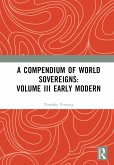The Borgia Family: Rumor and Representation explores the historical and cultural structures that underpin the early modern Borgia family, their notoriety, and persistence and reinvention in the popular imagination.
The book balances studies focusing on early modern observations of the Borgias and studies deconstructing later incarnations on the stage, on the page, on the street, and on the screen. It reveals how contemporary observers, later authors and artists, and generations of historians reinforced and perpetuated both rumor and reputation, ultimately contributing to the Borgia Black Legend and its representations. Focused on the deeds and posthumous reputations of Pope Alexander VI and his children, Cesare and Lucrezia Borgia, the volume charts the choices made by the family and contextualizes them amid contemporary expectations and reactions. Extending beyond their deaths, it also investigates how the Borgias became emblems of anti-Catholic and anti-Spanish criticism in the later early modern period and their residing reputation as the best and worst of the Renaissance.
Exploring a spectrum of traditional and modern media, The Borgia Family contextualizes both Borgia deeds and their modern representations to analyze the family's continuing history and meaning in the twenty-first century. It will be of great interest to researchers and students working on interdisciplinary aspects of the Renaissance and early modern Italy.
The book balances studies focusing on early modern observations of the Borgias and studies deconstructing later incarnations on the stage, on the page, on the street, and on the screen. It reveals how contemporary observers, later authors and artists, and generations of historians reinforced and perpetuated both rumor and reputation, ultimately contributing to the Borgia Black Legend and its representations. Focused on the deeds and posthumous reputations of Pope Alexander VI and his children, Cesare and Lucrezia Borgia, the volume charts the choices made by the family and contextualizes them amid contemporary expectations and reactions. Extending beyond their deaths, it also investigates how the Borgias became emblems of anti-Catholic and anti-Spanish criticism in the later early modern period and their residing reputation as the best and worst of the Renaissance.
Exploring a spectrum of traditional and modern media, The Borgia Family contextualizes both Borgia deeds and their modern representations to analyze the family's continuing history and meaning in the twenty-first century. It will be of great interest to researchers and students working on interdisciplinary aspects of the Renaissance and early modern Italy.









